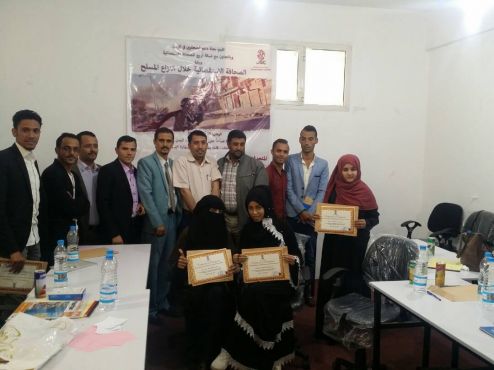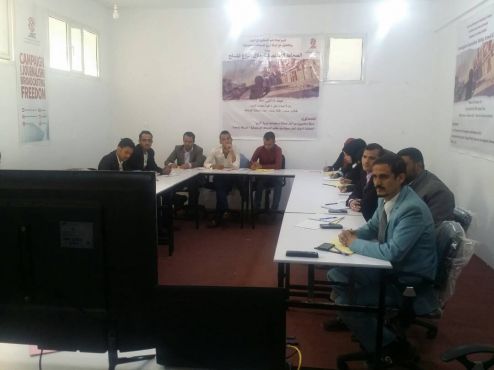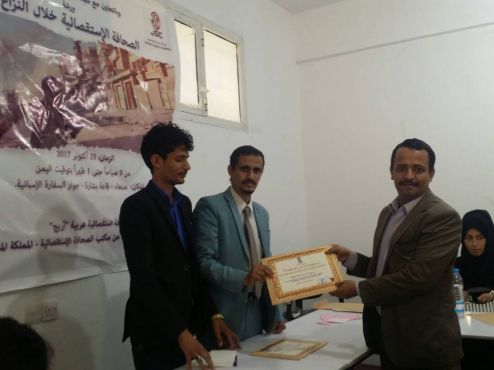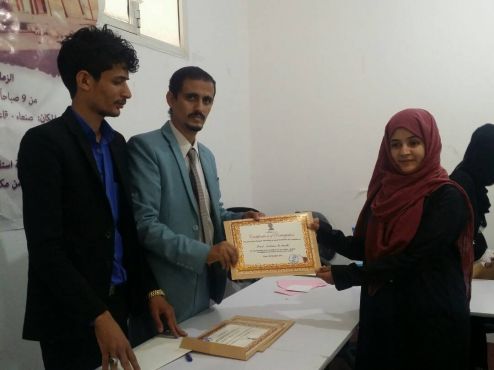Investigative Journalism during Armed Conflicts
2017-11-11 11:28
Preamble
Journalists in developing countries with emerging democracy or countries subject to external wars and internal conflicts face obstacles more dangerous and serious than any confrontation that could be faced by any journalist or foreign correspondent. Yemen is an example not far from the dangerous environment of journalistic work, where internal conflicts, political rivalries, war, and the most recent humanitarian crisis. One of the obstacles faced by a journalist or reporter in these areas is the lack of sources of information, lack of legal protection, shortage of protective press uniforms such as helmets and vests, and lack of material support from the media organizations in which he works.
One of the objectives of the committee is to strengthen journalists professionally in order to carry out the profession of journalism and raise its standards and effectiveness in the Arab world, especially in countries in conflict. The Journalist Support Committee in Yemen organized, in cooperation with the ARIJ Press Network on Wednesday, 25 October 2017, Yemen, Sana'a, a workshop entitled "Investigative Journalism during Armed Conflict" to enable and build the capacity of a group of correspondents working in various local radio stations and channels and to enhance their investigative capacities, especially in times of conflict, where it is difficult for journalists to perform their work due to restricted movement and lack of sources of information and lack of protection and financial assistance.
The following training report refers to a comprehensive presentation of the interventions and outputs of the training process and explains the outcomes of the training process.
Workshop Objectives
- Knowing the abc's of investigative journalism and its importance.
- The importance of developing a personal relationship with the storytellers.
- The importance of teamwork in investigative journalism.
- The importance of confidentiality before the completion of the investigation and taking the necessary security precautions.
- Information sources and its types, ranks and the field of work of the investigative journalism.
- The characteristics of an investigative journalist and what is the hypothesis through which he works.
- Documenting numbers and source names via Excel.
Participants
14 Journalists from various media outlets have participated in the workshop in order to identify the nature and the basics of investigative work, and to apply this during the armed conflict.
Training Schedule
The workshop included four main themes, three of which were discussed between the participants and the ARIJ researchers who were hosted on the Internet.
| Program | Used Equipments |
| Name Registration | |
|
First Session
"Introduction to investigative journalism and how to outline a story". |
|
| Q&A | |
|
Second Session
"The definition of the hypothesis and types of sources and how to develop the hypothesis" |
|
| Break | |
|
Third Session
"Documenting via Excel" |
|
| Brain Storming + Practical exercises | |
|
Forth Session
"The important influence of images in addressing western media and international audience" |
|
|
|
Outputs
The workshop opened a window for journalists to the investigative journalism where they learned the keys to investigative journalism and how to deal with events and facts in the context of armed conflicts and wars.
The participants thanked the Journalist Support Committee for the workshop, which added a lot of information and media knowledge.
For her part, Ms. Rana Al-Sabbagh, Executive Director of ARIJ, promised to provide three workshops for Yemeni journalists and support them with all the information,
Recommendations
- To give the utmost importance to journalism training in Yemen, due to the lack of materials, sources of information and training methods inflicted by the ongoing war, siege and internal and humanitarian crises.
- To ensuring that trainers are sent to personally attend in Yemen to train and qualify a team of journalists and correspondents for investigative journalism.
- To maintain a methodology for investigative journalism in order to ensure the desired impact.
- To invest all resources to build the most influential assumptions on public opinion issues.
- To participate in all competitions that motivate participants to produce surveys of all kinds.













